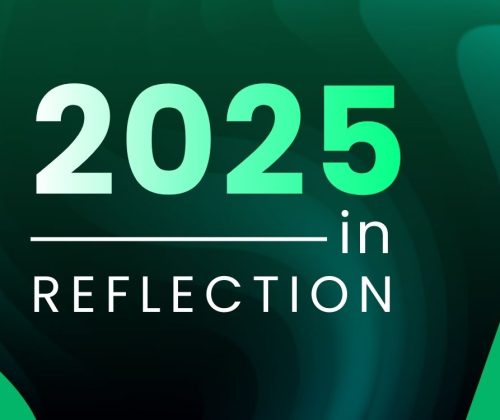In a world where consumer behavior and travel preferences evolve at an accelerated pace, the ability to continuously track these changes has become a strategic necessity for travel businesses. For Vietnam—a rapidly growing market with distinctive consumer dynamics — up-to-date insights are key to maintaining relevance and capturing market share.
This blog delves into how continuous data collection now becomes an operational advantage in today’s tourism industry.
 Adaptability to Rapid Market Changes
Adaptability to Rapid Market Changes
The modern travel landscape is characterized by rapid fluctuations driven by factors ranging from economic shifts to evolving traveler expectations. For instance, demand for travel in Vietnam is influenced by seasonal variations, emerging destinations, and even the growing impact of social media on travel decisions. Yet, adapting to these changes requires more than just awareness; it demands robust, continuous insights.
Monthly tracking data enables businesses to detect and respond to these shifts proactively. By monitoring travel demand trends among Vietnamese consumers, businesses can understand which destinations are trending, what types of trips are gaining popularity, and how spending patterns might evolve. For example, monthly insights into destination preferences reveal if travelers are increasingly seeking rural experiences over urban ones or if certain regions are seeing unexpected spikes in interest. Understanding these trends on a month-to-month basis allows businesses to tailor their marketing, adjust service offerings, and refine operational planning accordingly.
Beyond travel demand, continuous data also offers insights into booking windows and travel seasonality, helping businesses identify high-demand periods and plan their inventory and staffing levels to match. Data reflecting changes in traveler priorities—such as a renewed interest in wellness tourism or eco-friendly accommodations—empowers brands to adapt quickly to meet shifting preferences. In an environment where agility is critical, continuous travel data serves as a foundational pillar that enables brands to stay relevant and responsive.
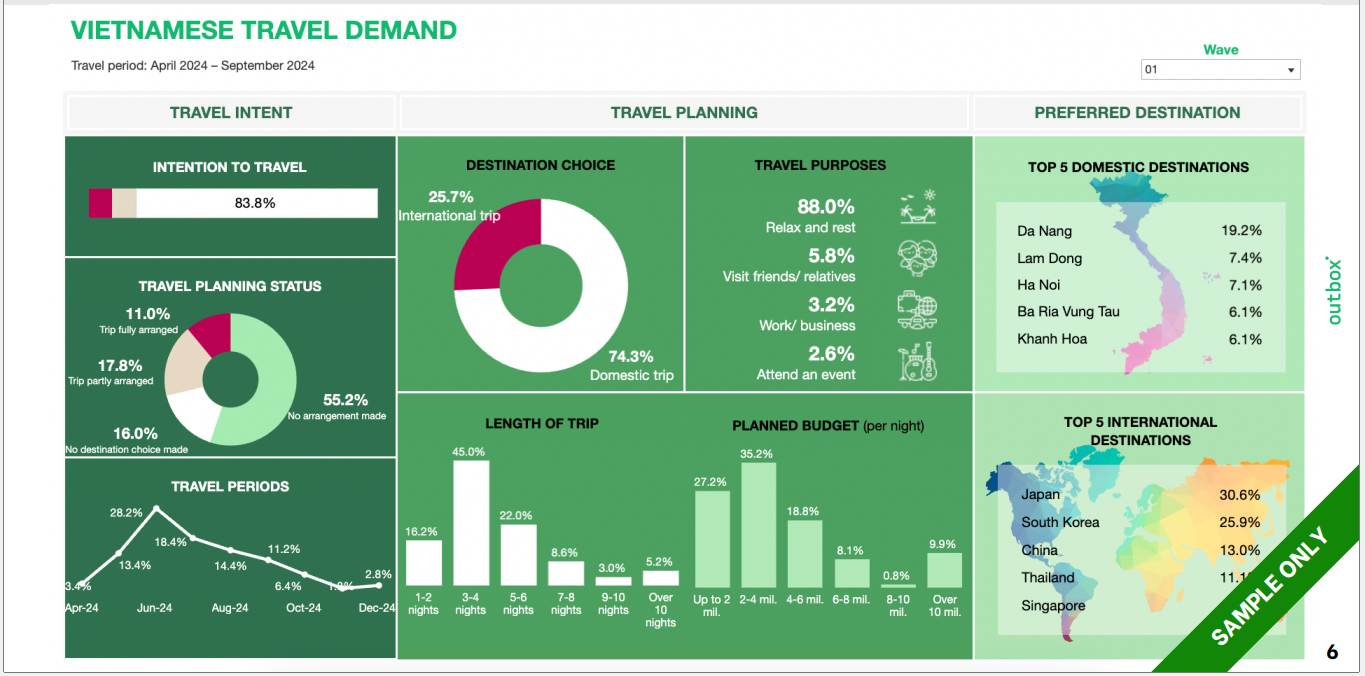
Demand for travel in Vietnam is influenced by seasonal variations, emerging destinations, and even the growing impact of social media on travel decisions
Enhanced Brand Health and Marketing Insights
For travel brands, measuring brand health is as essential as tracking demand. Brand health data captures the perceptions, awareness, and loyalty levels among consumers, offering critical insights that fuel effective marketing strategies.
The tourism sector is notably competitive, with a multitude of brands vying for consumer attention. Continuous data on brand health allows companies to see, in near real-time, how their campaigns are resonating and whether their messaging aligns with consumer expectations. Monthly tracking of marketing effectiveness metrics gives brands a clear picture of which campaigns are most effective in driving brand awareness, which channels yield the highest engagement, and where to adjust budget allocations.
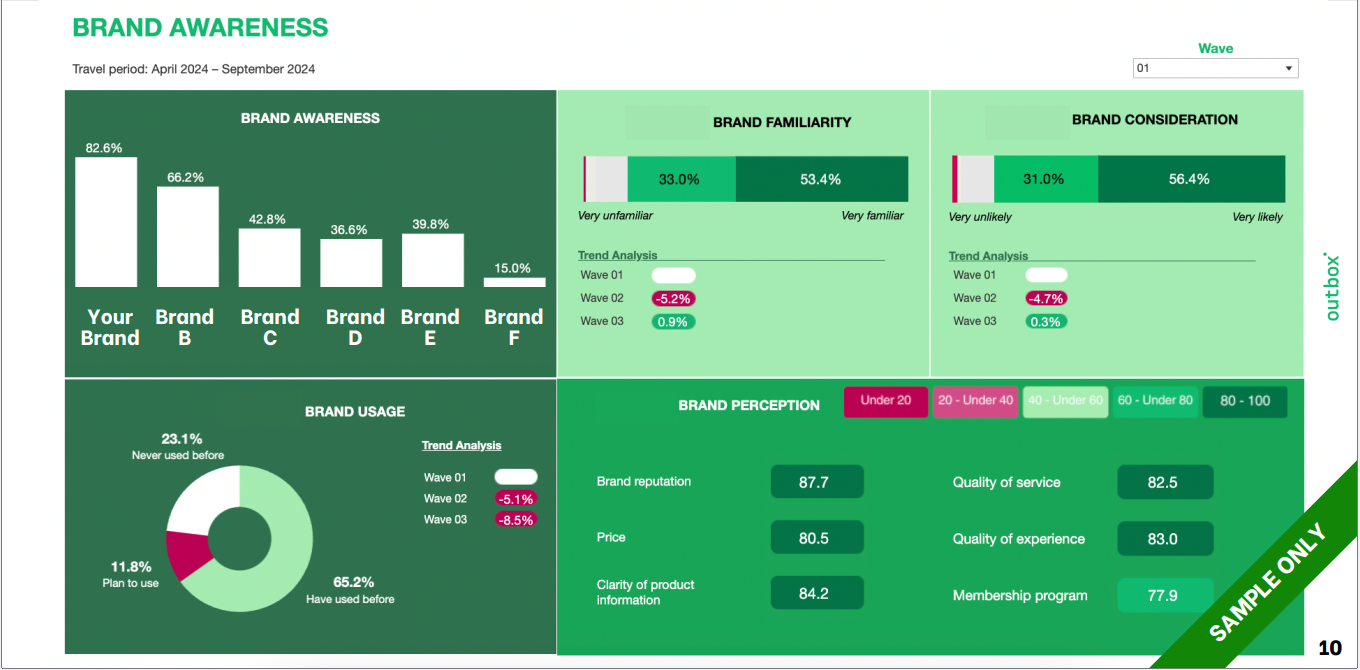
The Vietnam Travel Market Monthly Tracker provides monthly brand health measurements, which include awareness, recall, and perception metrics compared to competitors, enabling brands to gauge their standing in the minds of Vietnamese travelers.
With Vietnam’s fast-growing middle class and a notable shift in travel preferences post-pandemic, brand health has become a significant indicator of potential market capture. For example, as businesses invest in digital marketing and influencer partnerships, tracking shifts in brand perception monthly provides a way to fine-tune these initiatives. If data shows a positive correlation between digital campaigns and increased brand awareness, businesses can allocate more resources to these areas with confidence. Conversely, if brand perception stagnates or declines, it indicates the need to refine messaging or pivot strategies.
Additionally, continuous tracking supports competitive benchmarking. By assessing how a brand’s health compares to competitors on a regular basis, businesses can identify their strengths and address weaknesses before they impact market share. For instance, if Vietnamese travelers increasingly associate a competitor’s brand with premium experiences, a business may choose to enhance its luxury offerings or adjust its positioning to capture this lucrative segment. Continuous brand health monitoring thus becomes a vital tool for sustaining growth in a market where consumer loyalty is earned, not assumed.
Customization for Business-Specific Needs
Customization in research is crucial because travel trends can vary significantly based on demographics, regional differences, and even consumer psychographics. For instance, an airline looking to optimize its domestic routes may focus its add-on questions on preferred travel times, reasons for choosing specific routes, and travel expectations post-pandemic. Meanwhile, a hospitality group could inquire about travelers’ expectations around safety, sustainability, or in-room technology to better tailor their services to these preferences.
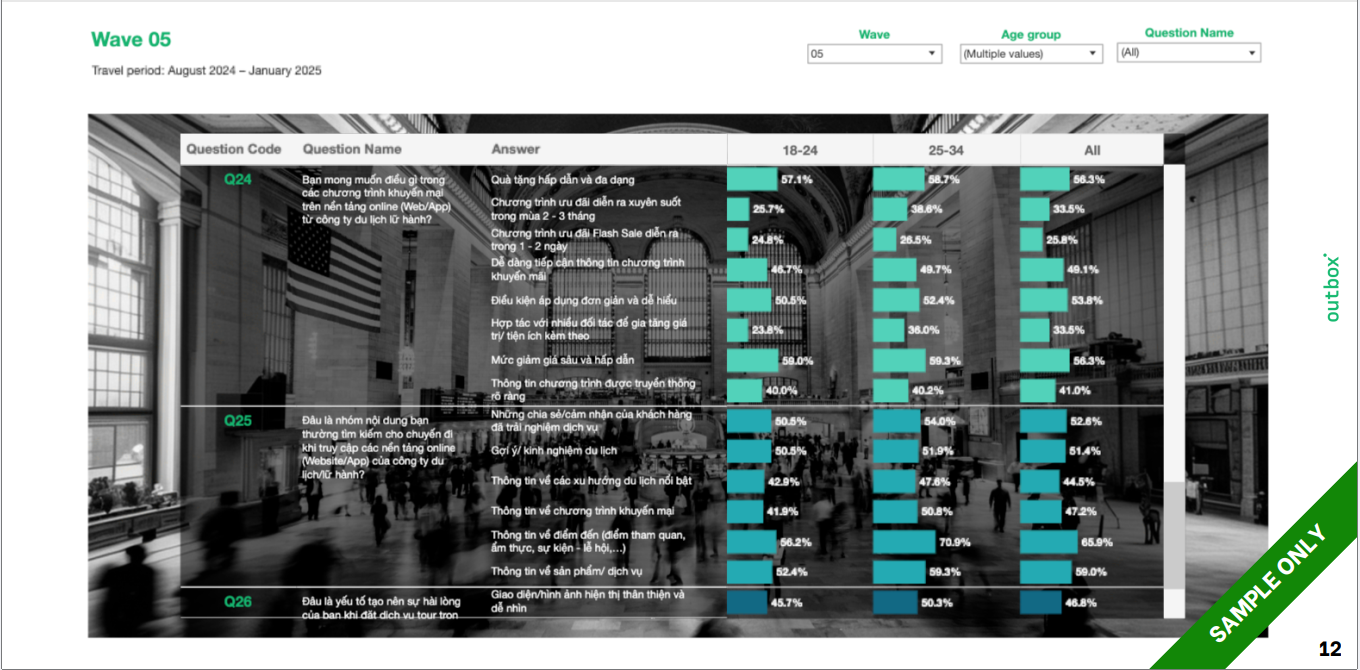
Vietnam Travel Market Monthly Tracker’s Add-On Questions feature allows businesses to include specific queries that address unique challenges or capture nuanced insights.
In the era of personalized experiences, having access to tailored data allows brands to create more relevant and effective strategies. Rather than relying on generalized data, businesses can use customized insights to understand how different consumer segments respond to specific offerings, from high-end services to budget-friendly travel packages. For instance, if a hotel chain learns through add-on questions that younger Vietnamese travelers prioritize eco-friendly initiatives, it could adjust its branding to emphasize sustainability practices, aligning itself more closely with this demographic’s values.
The ability to customize data collection ensures that insights remain relevant to a company’s specific goals and audience. In an industry where customer needs are diverse and multifaceted, having this level of flexibility enables businesses to capture actionable insights and maintain a competitive edge.
Conclusion
Continuous travel data collection is imperative. The ability to track travel demand, monitor brand health, and customize research allows businesses to stay attuned to consumer behavior and make data-driven decisions that maximize impact. By leveraging monthly insights, businesses can anticipate trends, enhance brand engagement, and deliver value to travelers in ways that resonate.

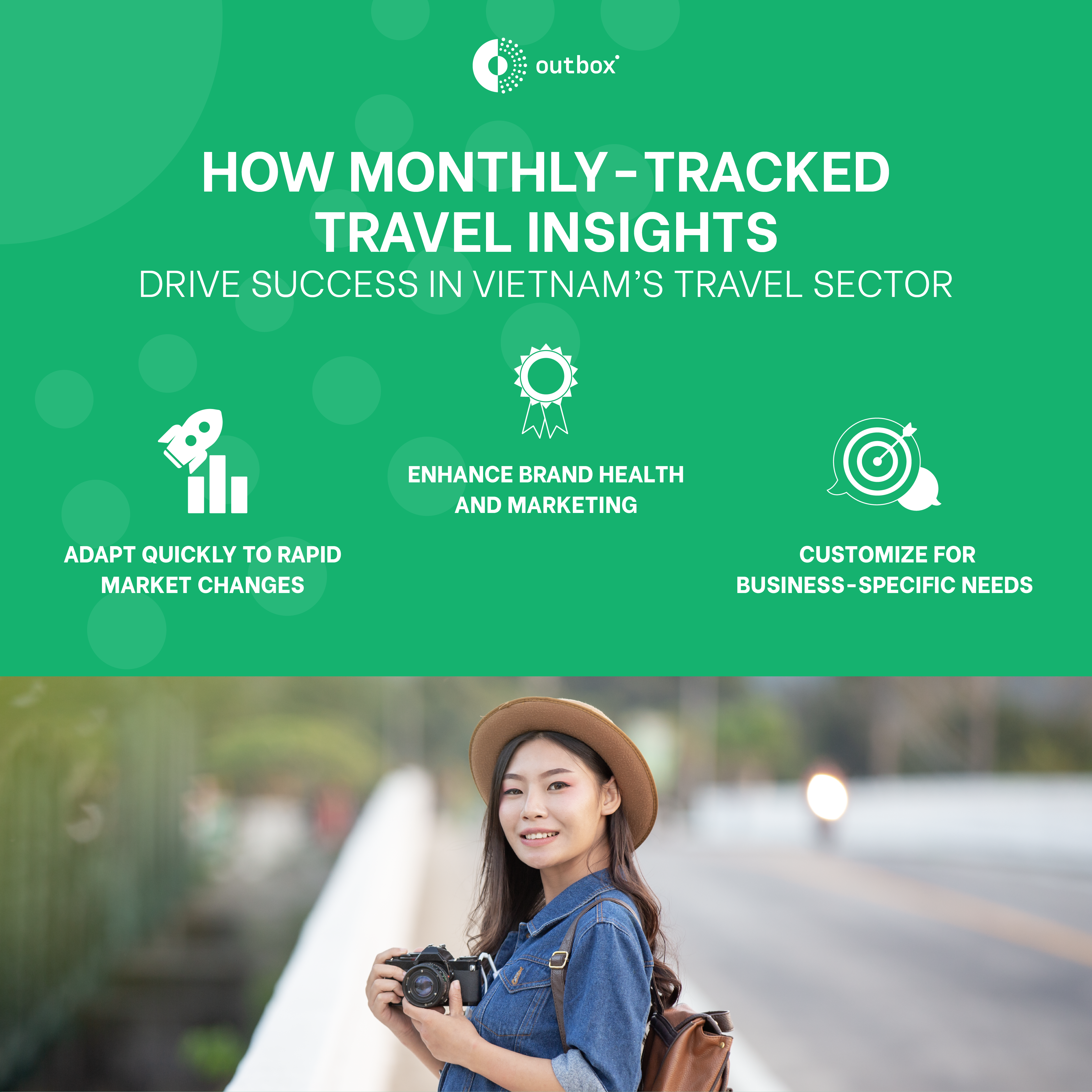 Adaptability to Rapid Market Changes
Adaptability to Rapid Market Changes

